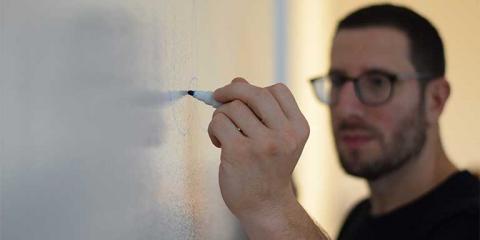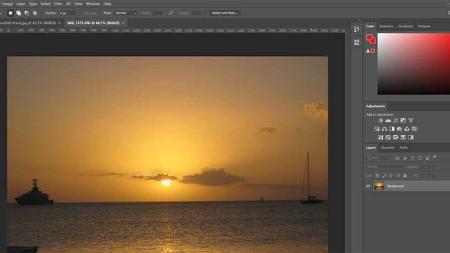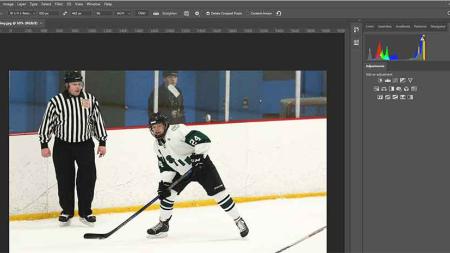
Related Class
Future of Photoshop - replaced by AI and Machine Learning
- Published on

A Photoshop replacement is coming in the form of artificial intelligence and machine learning. For many years Adobe and others assumed a replacement for Photoshop would be another app on a Mac or Windows computer. Yet in the not too distant future the common retouching done within Photoshop may be replaced by your smartphone or camera connected to a neural network using machine learning. While Photoshop being replaced by machine learning may sound like technology found in the distant future, it is something being demonstrated by researchers today. Your camera will be able to automatically correct an image before it is even captured based upon technology that was showcased in a recently published scientific paper by researchers from MIT and Google. Much of the process involved with retouching and correcting images can be replaced by real-time computational processes which improve the initial image capture in less time than it takes for the camer shutter to open and close.
A.I. faster than Photoshop at Retouching
Researchers from MIT and Google have demonstrated real-time corrections which can be applied to improve an image in less than 20 milliseconds right at the time a picture is captured. This type of transformation occurs quickly enough that the enhanced, corrected image can be previewed in a camera’s viewfinder before the image is even captured. What makes it better than Photoshop is that the transformations are applied at the pixel level, not globally. A typical correction applied in Photoshop impacts the entire image, while the algorithm being showcased by the Google and MIT researchers can apply corrections to specific areas, applying corrections only where they are needed. As this technology is still in the lab, you may still need to learn Photoshop to get the best results for your images.
How scientists trained machine learning to replace Photoshop
The researchers involved with creating the neural network input 5,000 images that had been professionally retouched. This helped to teach the network the attributes of a high-quality image. Eventually an image-editing neural network could use machine learning to understand the editing style of individual photographers or photo editors.
Can artificial intelligence on a phone or camera make Photoshop obsolete?
The goal of the project is to create professional-looking images without needing to open an image editing application like Photoshop. The team working on this project have made the machine-learning app small enough that it can be run from a mobile smartphone. To operate on a mobile phone, they have developed the app to analyze lower-resolution versions of images when determining which portions require retouching. The algorithm looks at many of the same areas a Photoshop retouching professional would evaluate, including color, saturation, and lightness. It then uses rules from the neural network makes changes which are applied to the high-resolution image. Because the system works with and processes the lower resolution version, it can function on slower, smaller mobile devices and does not require the typical computing power needed by Photoshop.
About the author
Jennifer Smith is a user experience designer, educator and author based in Boston. She has worked in the field of user experience design for more than 15 years.She has designed websites, ecommerce sites, apps, and embedded systems. Jennifer designs solutions for mobile, desktop, and iOT devices.
Jennifer delivers UX training and UX consulting for large Fortune 100 companies, small start-ups, and independent software vendors.She has served as a Designer in Residence at Microsoft, assisting third-party app developers to improve their design solutions and create successful user experiences. She has been hired by Adobe and Microsoft to deliver training workshops to their staff, and has traveled to Asia, Europe, India, the Middle East, and across the U.S. to deliver courses and assist on UX design projects. She has extensive knowledge of modern UX Design, and worked closely with major tech companies to create educational material and deliver UX workshops to key partners globally. Jennifer works with a wide range of prototyping tools including XD, Sketch, Balsamiq, Fireworks, Photoshop, Illustrator, and Blend for Visual Studio. She also works extensively in the fields of presentation design and visual design.
Jennifer is also an expert on Photoshop, digital image editing, and photo manipulation. Having written 10 books on Photoshop, and having consulted and provided training to major media companies and businesses around the globe.
Jennifer is the author of more than 20 books on design tools and processes, including Adobe Creative Cloud for Dummies, Adobe Creative Cloud Digital Classroom, and Photoshop Digital Classroom. She has been awarded a Microsoft MVP three times for her work with user experience design in creating apps for touch, desktop, and mobile devices. Jennifer holds the CPUX-F certification from the User Experience Qualification Board and assists others in attaining this designation in leading a UX certification course at American Graphics Institute. She is a candidate for a Master’s degree in Human Factors in Information Design.


